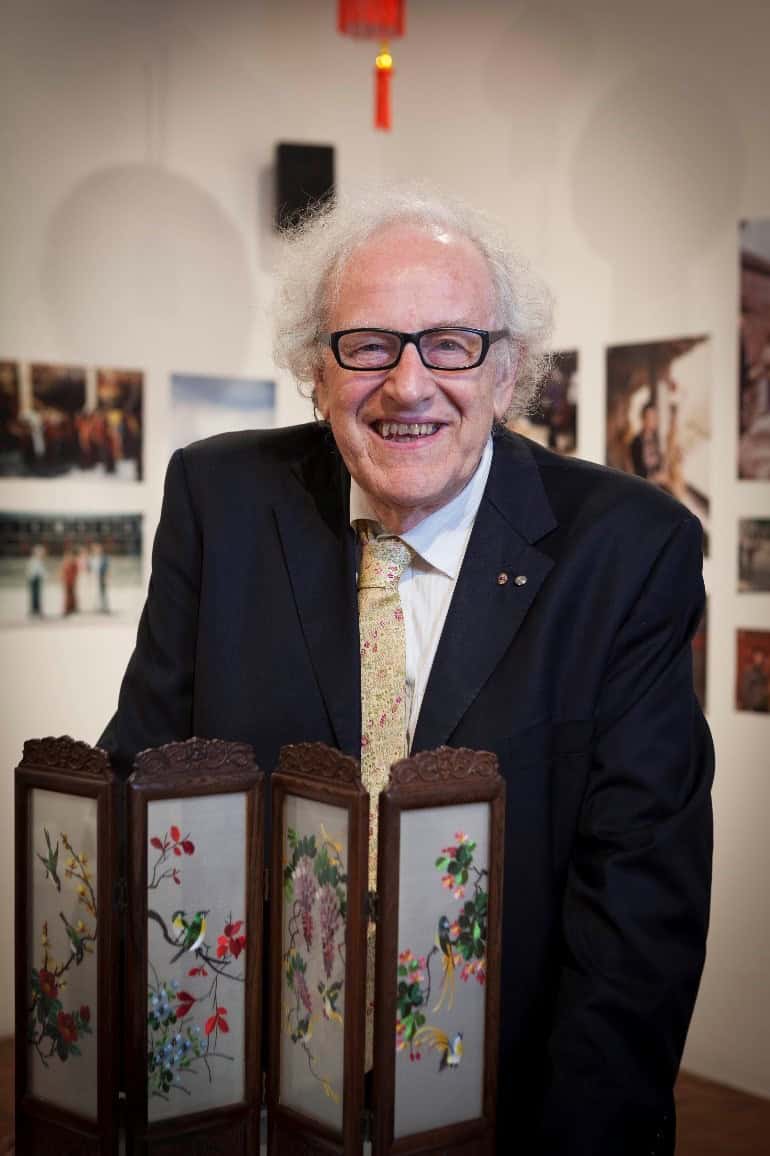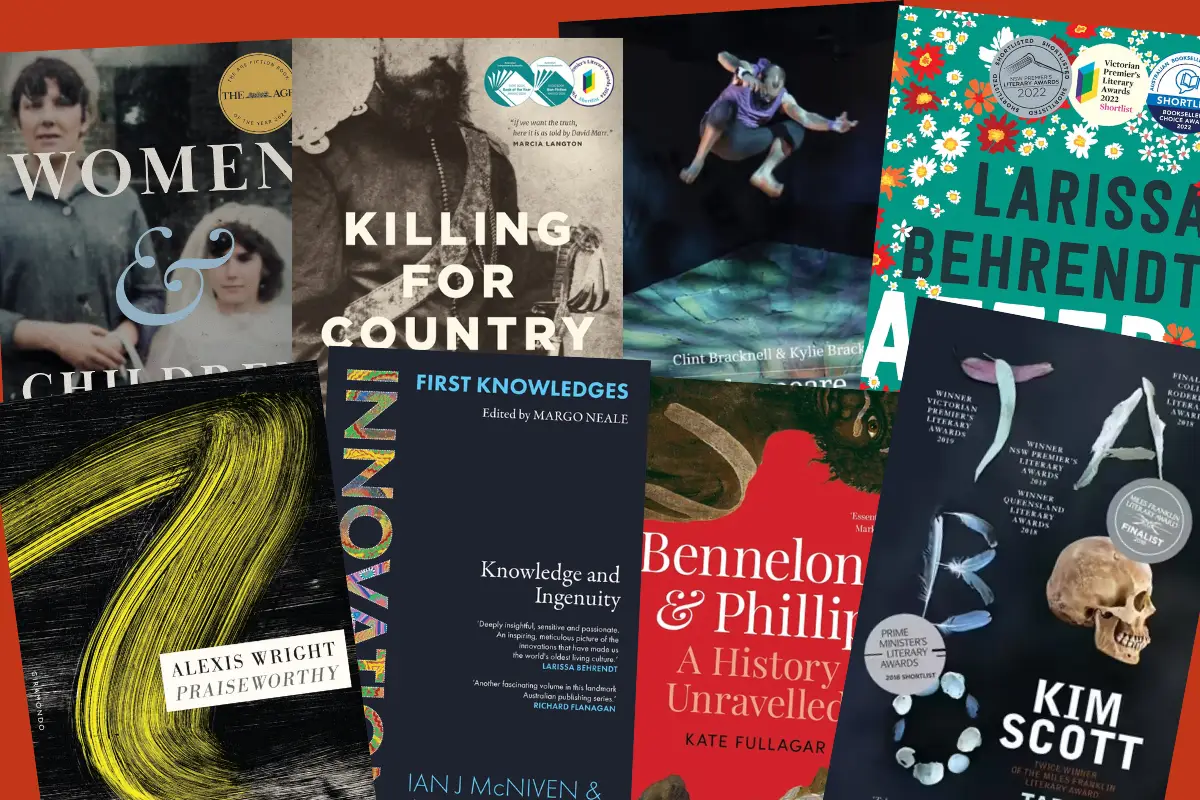
Emeritus Professor Colin Mackerras and Professor Joseph Lo Bianco chat with the Academy about what the honour means to them, the aspirations they have for the role, and the future of their fields.
Sixty years of scholarship with China

In early June, scholars of Asian studies travelled to Beijing to celebrate the career of Emeritus Professor Colin Mackerras, who marks sixty years of teaching at the Beijing Foreign Studies Institute. During the day-long Symposium, the Foundation for Australian Studies in China (FASIC) and Beijing Foreign Studies Institute announced they would establish the Colin Mackerras Chair of Australian Studies of China.
‘The position is a lovely sign that the effort I have over a lifetime put into promoting Australian friendship with China has been understood and appreciated,’ says Mackerras. ‘Sixty years is an exceptionally long period — I’m grateful I’ve been able to do this for so long and that the site of the Chair is the Beijing Foreign Studies University, where I first started teaching.’
The Beijing Foreign Studies University, known for its extensive diplomatic education programs, has consistently fostered a deep understanding of Australian Studies.
‘Nowadays, Australian Studies is a field of considerable importance throughout China,’ continues Mackerras. ‘There are more Australian Studies centres in China than in the rest of the world put together.’
Mackerras hopes the position will continue to foster strong cultural and educational exchange between Australia and China.
‘The Federation of Australian Studies in China is an Australian body which has, over many years, done an excellent job promoting Australian studies in China. It is a model of Australia’s international cultural assistance.’
‘China Studies are important to Australia. We must understand their history, culture, lifestyle, language and ways of seeing the world, and in my opinion, we have not done nearly as well as we ought to have done, considering China’s importance in the world as a civilisation and as a growing power.’
Emeritus Professor Colin Mackerras is an expert in foreign affairs and an authority on East Asian culture, particularly China. A Chairman of the School of Modern Asian Studies at Griffith University, Mackerras has held a teaching position at the Beijing Foreign Studies University for over sixty years.
‘We have so many ideas’: advancing language policy studies in India

In honour of Emeritus Professor Joseph Lo Bianco’s contributions to language and language policy, Woxsen University in India has established the Joseph Lo Bianco Chair in Language Policy Studies. Professor Anik Nandi was also announced as the inaugural appointee.
‘The invitation to accept the naming of the Chair came as a complete surprise. It was an immense honour,’ Lo Bianco says. ‘Woxsen is a dynamic institution in Hyderabad, which itself is a dynamic city, in a part of India that is full of innovation and experimentation. So, I am very delighted and honoured to be able to participate with them, and the appointee, Professor Anik Nandi, is an impressive young scholar.’
Professor Lo Bianco first met Professor Nandi at a sociolinguistics summer school in Jyväskylä, Finland, in 2010, where Nandi was presenting research on language planning histories and practices in Spain and India.
‘It was a brilliant presentation, and I peppered him with questions because his ideas were original and engaging. When he was appointed to the professorship, he told me he had enjoyed our Finnish interaction and recalled it in detail. He has gone on to be one of the most promising and original scholars in this field in the world. That to me is also a wonderful prospect for link with future directions.’
Professor Lo Bianco notes that Australia and India are confronted with similar challenges when it comes to cultural diversity, social cohesion, and language policy.
‘This includes the vitality and reclamation of indigenous languages and their role in families, communities and institutions.
The link between language and social cohesion is under-researched and under-appreciated in many societies.
‘Work has already begun with an agenda drawing on my work in peace-building, links to the United Nations, and the promotion of a method I use in community-based formulation of language policies that I call “metalogue deliberation”.’
‘We need to think how to influence policy away from assimilationism and towards a more rights-based multilingualism,’ continues Lo Bianco. ‘We need to expand the presence of researchers from the region in academic literature and ensure more of their voices are heard and their experiences comprehended. The stock of theory and concepts that we operate with in the field of language planning theory can be renewed and refined to acknowledge different historical experiences, epistemologies, and forms of multilingual society. We have so many ideas.’
Joseph Lo Bianco is Emeritus Professor of Language and Literacy Education at the Melbourne Graduate School of Education. He has served as the President of the Australian Academy of the Humanities and is currently the International Secretary. In 2012, he was appointed Research Director of the UNICEF Language and Peacebuilding initiative in Malaysia, Myanmar, Thailand. Joseph wrote Australia’s National Policy on Languages in 1987, the first multilingual national language policy in an English-speaking country and was Chief Executive of the National Languages and Literacy Institute of Australia until 2002.



